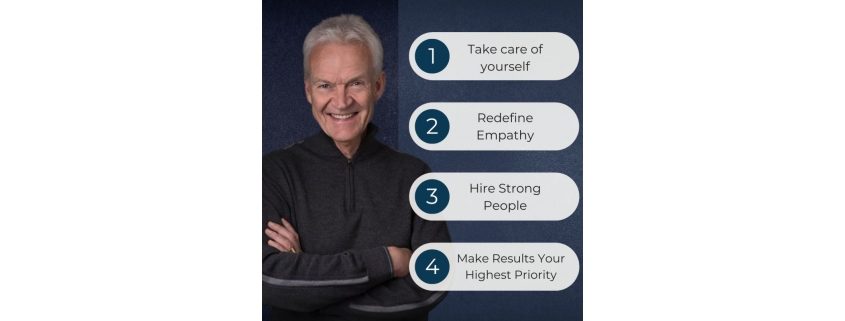Redefining Empathy and Resilience in the Workplace.
Some perspectives for leaders to consider:
- Taking care of yourself. This has nothing to do with self-centeredness. It has to do with ensuring that your leadership comes from overflow not from emptiness. You can’t give what you don’t have. To inspire others, you must be inspired.
- Redefining empathy. Empathy has emerged as a critical component of effective leadership, reshaping how organizations approach workplace dynamics and employee well-being. But empathy isn’t about coddling people, making it easy, rescuing people from their unhappiness, or lowering your standards and expectations. Empathy fatigue often comes from working harder than the person we have empathy for. In the recovery and addictions field this is called enabling. Empathy, instead, is about supporting people, feeling with them, helping them find and develop the resources they require to do their job, and then being in their corner through the tough challenges that come with that responsibility. If empathy isn’t empowering people, it’s not empathy.
- Hiring strong people. Work is hard. That’s why we call it work. Don’t use psychological safety as a weapon to hobble your manager. Managers have an accountability to hold themselves and their team to high standards that will require strength. Nobody takes pride in doing things that are easy. Let people know what is expected of them before you hire them and when they come on board. And make sure they’re up to the challenge. Hire people who are strong givers and are willing to do their part to co-create an inspiring, caring culture that will produce the right results.
- Making results your highest priority. Organizations are not in the business of taking care of people. Organizations are in the business of getting results. Of course, you won’t get results – and certainly not long term – if you don’t take care of people. We also won’t get the needed results if we burn our leaders out. Making results matter isn’t just good for organizations. It’s good for the mental health of the people who work in those organizations. It’s good for us all to be contributing to the world by producing meaningful results. It’s good for human beings to set our “problems” aside, lean into the grind, and push through to the other side. Getting stronger is what builds resiliency, not getting let off the hook. Just be sure that the results you are working on together are both challenging and meaningful and remember the purpose of business: it’s a tool to create what matters in life.
If you are interested in diving more deeply into the topic of redefining empathy and resilience, join me tomorrow – February 21st – for our complimentary webinar.









